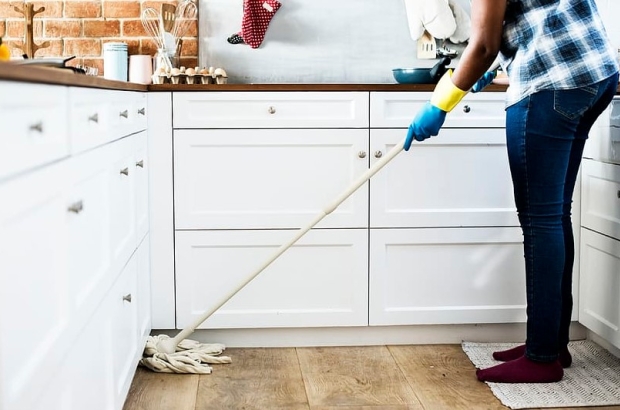- Daily & Weekly newsletters
- Buy & download The Bulletin
- Comment on our articles
New rules aim to better protect cleaners and home helpers
Plans have been unveiled to improve working conditions for cleaners and home helpers in Brussels.
However, the measures were immediately criticised as “unworkable” by Federgon, the federation of HR service providers, which has now urged the city authorities to rethink the proposals.
The Brussels government's plans aim to improve the working conditions of housekeepers. They include proposals for housekeepers to receive 16 hours of training, a mandatory "pre-visit" to the workplace and a ban on users found guilty of misconduct or abuse towards cleaners that they employ.
The plans largely aim to target those companies who employ people for housekeeping and family help. Anyone using these types of services usually pay the people who work for them with service vouchers.
In Brussels, 27,702 domestic helpers work in the service voucher sector. Some 21,393 of these live in Brussels itself and 95% are women. They perform household tasks for 116,162 Brussels residents each day.
The region's authorities say the new measures are badly needed partly because such workers are regularly affected by musculo-skeletal diseases affecting joints, muscles and tendons.
Brussels employment minister Bernard Clerfayt said the steps aim to enable such workers to "limit the risks to their health and lighten their workload from the age of 50".
He added: "Housekeepers perform daily tasks that can have a major impact on their health in the long term so I am delighted with the great progress made in the Brussels region to make their daily lives easier.
“We have to better protect these women, give them the opportunity to develop their skills and, above all, work with them to limit the risks to their health and lighten their workload from the age of 50.”
Under the plans, companies employing housekeepers and cleaners will have to hold two annual individual interviews with them and provide evidence of training support systems and exchange of good practice.
New users must agree to a mandatory visit in advance before working with service vouchers. Users who "misbehave" or are abusive to employees may be excluded and no longer able to use the system.
According to Maron, each housekeeper will benefit from 16 hours of compulsory training. New workers must complete a nine-hour compulsory training course, including a minimum two hours in ergonomics.
For those nearing the end of their working life, the plans will allow housekeepers over the age of 50 to become a "tutor", putting their expertise to the benefit and support of a less-experienced colleague.
The tutor will also be able to provide training in the field, conduct individual interviews and visits to the place of service to check the conformity of equipment made available by customers.
However, Federgon, which represents companies that are active in the field of HR services and job placement, is highly critical of the plans, saying that the capital's service voucher companies will “financially strangle” .
Describing the proposals as "unbearable", it said they will “accentuate the imbalance between costs and revenues of approved companies”.
Arnaud le Grelle, Brussels-Wallonia director at Federgon, said: “The costs generated by the additional obligations are totally unacceptable for companies. If, in principle, these measures have a good intention, the requirements they make render them impractical and unaffordable.”
He said the plans had not been properly costed, adding that they “increase the requirements for supervision and training and the responsibility of companies to customers and housekeepers”.
Le Grelle said the new requirements had not been "financed in the long term and without knowing whether they are likely to respond to the problems identified".














